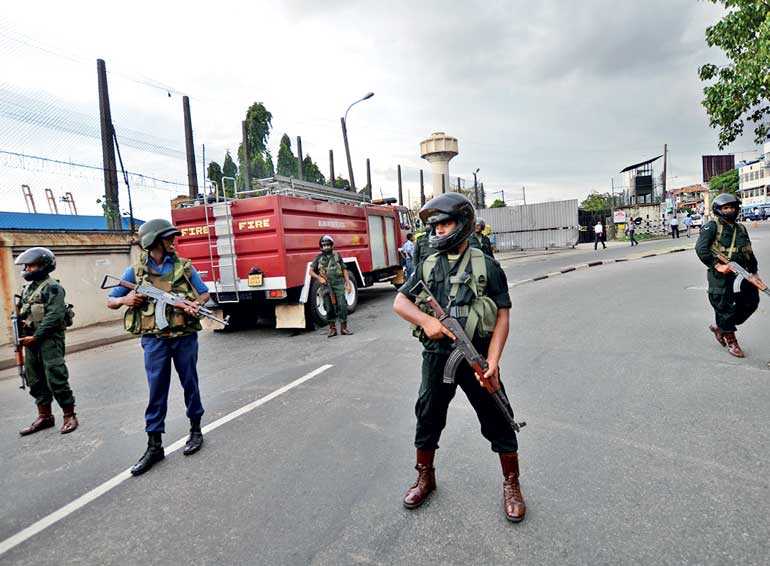Wednesday Feb 18, 2026
Wednesday Feb 18, 2026
Tuesday, 30 April 2019 00:00 - - {{hitsCtrl.values.hits}}

By Syed Badrul Ahsan
Terrorism is not dead. The purveyors of terror are yet around.
That is the lesson coming out of the eight explosions which rocked Sri Lanka on Easter Sunday. With close to 300 people dead and hundreds of others wounded, one is quite certain that the struggle against global terror is yet to succeed.
The rank and file of terrorists, along with their godfathers, may have slunk into their caves through the seeming defeat of ISIS. Governments in individual countries may quite properly claim that terrorists in the territories within their jurisdiction have been beaten back into their lairs, never to reappear.
Yet after Christchurch, our doubts began to rise again. Here was a country at peace, with its multi-faith based society comfortable in its everyday living. No one could imagine that mosques would come under the assault of a fanaticism-driven man journeying all the way from Australia to wreak havoc in a country where peace was in abundance.
Terror has not died since the time when the Taliban went into the odious task of blowing the Bamiyan statues to splinters in Afghanistan. Terrorists demonstrated their macabre visage when they destroyed the twin towers in New York. In London, in Paris, in Istanbul, in Mumbai, in Peshawar, in spots around Europe, in Africa, terror has struck again and again.
In the name of a god that is not God, these practitioners of hate have killed and maimed and left societies wounded beyond measure. The faithful have died at Friday prayers in Pakistan, where the long reach of terrorism remains a potent threat, with Hazaras in Quetta losing their lives at the hands of so-called purists upholding the faith.
Organised terror continues to pervade regions and countries, injecting into the lives of people quantities of fear that can only leave nations in various states of despair. The attacks in Pulwama reflect the terror that organised government can often resort to in its sinister objective of fulfilling bad ambitions.
Likewise, when a bunch of young men driven by evil march into a café in Dhaka and bludgeon good men and women at dinner to death, mutilating their features in the process, it is the idea of hate which comes alive again. No religion, no prophet, no sufi, no political saint is influential enough to deter these merchants of death in their mission to murder in the name of their gods.
And yet it is crucial that these self-professed agents of faith be tackled, held down firmly and neutralised. Governments need to do more, a whole lot more, individually as also collectively, in hunting down these criminals - relentlessly, purposefully and decisively - in order for basic order to return to lives everywhere. That must come in tandem with utilisation of mosques, churches, temples and synagogues around the world in the dissemination of the message that terrorism anywhere is terrorism everywhere.
And one must not lose sight of the fact that security, for every individual country and collectively around the world, is of the essence. But security must not be a reductionist affair. Civil liberties and democratic freedoms must not be sacrificed at the altar of the anti-terrorism struggle. Citizens must be drawn into the anti-terror struggle, for states are composed of people.
The word must go forth, after the murder and mayhem in Sri Lanka, that terrorists are enemies of civilised living. It is not enough to push them back into their lairs. It is only reasonable that they be traced, tracked down and dealt the justice their malignancy calls for.
All of us are Sri Lankans today. All of us have seen our blood flow. All of us owe it to ourselves, to the faiths we swear by, to spear the satanic elements strutting around us into silence.
(The writer is a veteran journalist and noted columnist of English journalism in Bangladesh. Currently, he is the Editor-in-in-Charge of The Asian Age, the country’s number one English national daily.)